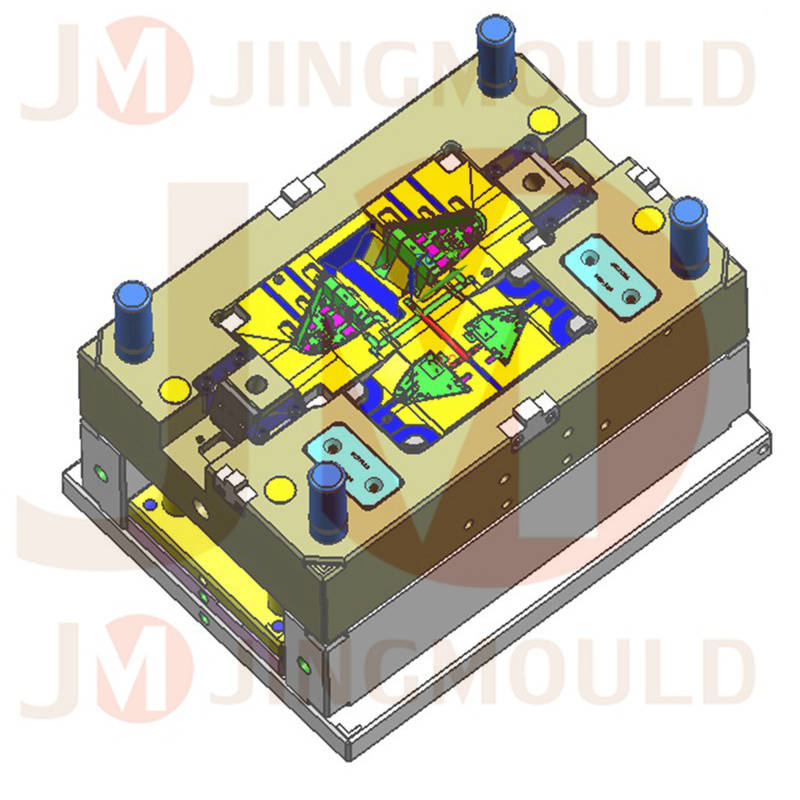Plastics are efficient, long-lasting, efficient and versatile and therefore an integral part of most areas of modern life. However, although they provide suitable solutions for many important applications and are often the most energy- and resource-efficient raw material, plastics are a criticism of the throwaway society.
Unprocessed plastics - The granules are turned into products with a wide range of applications: they are efficient, long-lasting, efficient and versatile. - Photo: © mrmrsmarcha1 / stock.adobe.com
Plastics perform essential functions when it comes, for example, to hygiene, protection and longer shelf life of food as well as highly innovative solutions in the medical field or climate-friendly technologies in vehicle and aircraft construction. Even powerful wind turbines or photovoltaic systems would be unthinkable without plastics. In addition, there are valuable recycling options even after use: be it as a recycled raw material or as an energy supplier.
What is the current debate about?
Above all, it is about discussing facts about the benefits of plastic for sustainable development and acknowledging them instead of stigmatizing individual applications and products on a flat-rate basis.
At the political level, it is also about
To shape the EU Plastics Strategy of January 2018 in such a way that the potential of plastics is best exploited.
to tackle sustainable waste management worldwide. The G20 initiative initiated by Germany points the way to this.
to promote an optimal mix of diverse sustainable waste recycling options for plastics. Germany serves as a role model for other countries and regions and as a trailblazer to stop the further pollution of the oceans.
Plastic can do it: solutions for today and tomorrow
Plastic is considered the material of the 21st century. The resulting products help conserve natural resources, ensure the nutrition and drinking water supply of a growing world population, use less energy and improve medical care.
INFOGRAPHY: variety in the application
Proportion of plastics processed in Germany by industry, 2016, in percent; Source: PlasticsEurope
In 2016, 12.2 million tonnes of plastics were processed in Germany. Of this, the packaging industry accounted for 35 percent, followed by the construction and automotive industries. - Click on the picture to enlarge it!
In 2016, 12.2 million tonnes of plastics were processed in Germany. Of this, the packaging industry accounted for 35 percent, followed by the construction and automotive industries. - Click on the picture to enlarge it!
Five exemplary fields of application for plastic products:
packagings
The wasteful use of food is far more than an ethical problem. In emerging economies, around half of the food spoils before reaching the consumer. Plastics can counteract this problem: Plastic packaging protects food efficiently from environmental influences and simplifies storage and transport.
mobility
The mobility sector is one of the climate problem children. While the energy industry and industry have already massively reduced their greenhouse gas emissions, traffic in this country has increased. All the more important are innovative plastics that significantly reduce weight and therefore CO2 emissions, especially in cars and airplanes. For example, the modern Airbus A350, which more than half consists of carbon-fiber-reinforced plastics, consumes around 25 percent less fuel than its predecessor.
medicine
Plastics are revolutionizing medical progress: new hip joints or contact lenses would be inconceivable without plastic, as well as innovative artificial heart valves. 3D printing with plastics opens up completely new possibilities for individualized medical technology. Plastics are indispensable even beyond high-tech medicine, for example for blood bags or sterile packaging.
construction
Around 35 percent of the total energy consumption in Germany is attributable to the building sector, in particular for heating and hot water. This is accompanied by a significant CO2 emissions. Still: The Federal Government wants to realize by 2050 a nearly climate-neutral building stock. Plastics, whether for thermal insulation, for window frames or modern home automation systems, help to save energy and reduce emissions.
Agriculture
Climate change and water scarcity present significant challenges for farmers. Meanwhile, plastics are as indispensable as tractors and agricultural machinery: plastic pipes for irrigation and fertilization prevent the waste of water and nutrients, rainwater can.
-
 Design / Konstruktion für SpritzgusswekzeugDesign / Konstruktion für Spritzgusswekzeug Der Formenbau für den Spritzgusshersteller ...
Design / Konstruktion für SpritzgusswekzeugDesign / Konstruktion für Spritzgusswekzeug Der Formenbau für den Spritzgusshersteller ...Mögen Sie ?0
Weiterlesen -
 Mold design for injection moldingMold design for injection molding manufacturer Jingmould offers a wide range design of mold, tooli...
Mold design for injection moldingMold design for injection molding manufacturer Jingmould offers a wide range design of mold, tooli...Mögen Sie ?0
Weiterlesen -
 2022 Preferred Quality Supplier Award from ABB ChinaIt is a great honor for us to receive this special award. Thanks to the hard work of Jingmould te...
2022 Preferred Quality Supplier Award from ABB ChinaIt is a great honor for us to receive this special award. Thanks to the hard work of Jingmould te...Mögen Sie ?0
Weiterlesen -
 How CNC Machining Works: An OverviewHow Does CNC Machining Work? CNC machining is a subtractive manufacturing process that ...
How CNC Machining Works: An OverviewHow Does CNC Machining Work? CNC machining is a subtractive manufacturing process that ...Mögen Sie ?0
Weiterlesen -
 Präzisions Pulvermetall Formteile aus ChinaIndividuelle Pulver- (Sinter-) metallteile nach Kundenzeichnung vom chinesischen Marktführer ...
Präzisions Pulvermetall Formteile aus ChinaIndividuelle Pulver- (Sinter-) metallteile nach Kundenzeichnung vom chinesischen Marktführer ...Mögen Sie ?0
Weiterlesen -
 CNC Machining SERVICECNC Machining Jingmould offers high-precision CNC machining services with quick turnarounds. With...
CNC Machining SERVICECNC Machining Jingmould offers high-precision CNC machining services with quick turnarounds. With...Mögen Sie ?0
Weiterlesen






